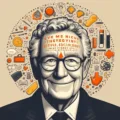Learned helplessness is a psychological condition wherein an individual feels powerless to control or change a situation, even when opportunities to do so exist. This state of mind can have profound effects on one’s mental health and overall well-being. In this comprehensive guide, we’ll delve into the origins of learned helplessness theory, its implications, and strategies for overcoming it.
Understanding Learned Helplessness
The concept of learned helplessness was first described by psychologists Martin Seligman and Steven F. Maier after a series of experiments with animals in the late 1960s. They observed that after repeated exposure to an adverse event that they could not escape, the animals would eventually stop trying to avoid it, even when given the chance to escape. This behavior has since been observed in humans, showing how exposure to uncontrollable events can lead to a sense of helplessness.
Signs and Symptoms
Learned helplessness manifests in various ways, depending on the individual and their experiences. Common signs include a lack of effort, low self-esteem, procrastination, and feeling overwhelmed by routine challenges. It can also lead to mental health disorders such as depression and anxiety.
Impact on Mental Health
The implications of learned helplessness are significant, particularly in relation to mental health. It can exacerbate feelings of worthlessness and hopelessness, contributing to the development of depressive disorders. Understanding the theory is crucial for mental health professionals in order to provide effective interventions.
Strategies to Overcome Learned Helplessness
Breaking the cycle of learned helplessness involves cognitive-behavioral therapy (CBT), building resilience, and fostering a growth mindset. By challenging negative thought patterns and encouraging proactive behavior, individuals can regain a sense of control over their lives.
FAQ
What causes learned helplessness?
Learned helplessness can be caused by repeated exposure to uncontrollable events or situations where an individual feels they have no power to change the outcome.
Can learned helplessness be unlearned?
Yes, with appropriate therapeutic interventions such as CBT, individuals can unlearn the patterns of thought and behavior associated with learned helplessness.
Is learned helplessness linked to any specific mental health disorders?
Learned helplessness is closely associated with depression and anxiety disorders, as it can reinforce negative beliefs and feelings of powerlessness.
How does learned helplessness affect children?
In children, learned helplessness can lead to academic disengagement, social withdrawal, and a lack of motivation to pursue goals or face challenges.
What role does resilience play in combating learned helplessness?
Resilience is key to overcoming learned helplessness as it involves developing coping strategies, a positive mindset, and the ability to recover from setbacks.









